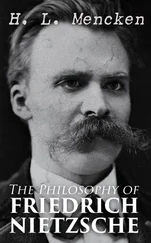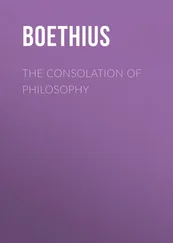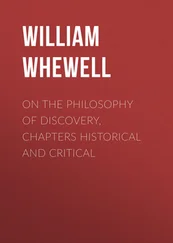One might react by loosening the relation of synonymy to some equivalence relation that would have a better chance of holding between the analysandum and the analysans in philosophically significant analyses. Call the looser equivalence relation “metaphysical equivalence.” A wider class of philosophical truths might be transformable into logical truths by the substitution of metaphysically equivalent terms. Call the truths in the wider class “quasi-Frege-analytic.” The poor track record of philosophical analysis does not suggest that the class of quasi-Frege-analytic truths will be very much wider than the class of Frege-analytic truths. 23In any case, the looser metaphysical equivalence is, the more problematic it will be to extend an epistemology for logical truths to an epistemology for quasi-Frege-analytic truths. The aim of the loosening is to permit some distance between the meaning of the analysandum and the meaning of the analysans ; that will tend to make even the coextensiveness of the analysandum and analysans less cognitively accessible. There will be a corresponding tendency to make the material equivalence of the original quasi-Frege-analytic truth to the logical truth less cognitively accessible too.
For instance, one might define “metaphysical equivalence” as sameness of intension in every context. The question is then how the sameness of intension in every context of the substituted terms could enable one to advance from knowing or justifiably believing the logical truth to knowing or justifiably believing the merely quasi-Frege-analytic truth. No guarantee has been provided that we can know or justifiably believe the universally quantified biconditional of the substituted terms. By hypothesis, that biconditional will in fact express a necessary truth in every context; the problem merely shifts to how such truths can be known, just as in the case of modal-analyticity. If that problem were already solved, there would be little to gain from appealing to quasi-Frege-analyticity in order to explain how core philosophical truths can be known.
Even if many philosophical truths are quasi-Frege-analytic, it does not follow that we can gain cognitive access to them simply on the basis of our logical and linguistic competence.
Yet another proposal is to consider as (metaphysically) analytic just the logical consequences of true (or good) semantic theories. It is presumably in the spirit of this proposal to interpret semantic theories not as stating straightforwardly contingent, a posteriori facts about how people use words but as somehow articulating the essential structure of semantically individuated languages; in this sense, the word “green” could not have meant anything but green in English. Even so, the definition does nothing to trace any special cognitive access that speakers have to semantic facts about their own language to any special metaphysical status enjoyed by those facts. It also counts every logical truth as analytic, since a logical truth is a logical consequence of anything, without illuminating any special cognitive access we may have to logical truths. Of course, if someone knows the relevant semantic truths about their own language and is logically proficient, then they are also in a position to know the analytic truths as so defined. But, on this definition, we do nothing to explain how the semantics and logic are known in the first place by saying that they are analytic. As in previous cases, the account of analyticity merely shifts the burden from explaining knowledge of analytic truths to explaining knowledge of some base class of necessary or logical or semantic or other truths. Once the analyticity card has been played to effect this shift of the explanatory burden, it cannot be played again to explain knowledge of the base truths, by saying that they are analytic, for they count as analytic simply because they belong to the relevant base class, and the question remains how we know truths in the base class.
Unless one is a skeptic about meaning or modality, one can define several notions of analyticity in semantic and modal terms, but none of them provides any reason to regard the truths to which it applies as somehow insubstantial, or as posing no significant cognitive challenge. That upshot may seem puzzling. Surely we sometimes make a sentence true by stipulative definition. For example, I might introduce the term “zzz” (pronounced as a buzz) by saying “A zzz is a short sleep” and thereby make “A zzz is a short sleep” true. What prevents us from using such cases as paradigms to fix a semantic notion of analyticity on which analytic truths are insubstantial?
We can see the problems for the proposal more clearly by distinguishing the semantic from the metasemantic. Semantics facts are facts of the kind we attempt to systematize in giving a systematic compositional semantic theory for a language, facts as to what its expressions mean. Metasemantic facts are the nonsemantic facts on which the semantic facts supervene. The distinction is rough but clear enough to be workable. Thus the fact that “horse” applies to horses is semantic, not metasemantic; the fact that utterances of “horse” are often caused by horses is metasemantic, not semantic. 24Similarly, the fact that “zzz” means a short sleep is semantic, while the fact that it was introduced by someone saying “A zzz is a short sleep” is metasemantic. The semantic theory takes no notice of the act of stipulation, only of its outcome – that a given expression has a given meaning. The act of stipulation makes the sentence true by making it have a meaning on which it is, in the quite ordinary way, true. My saying “A zzz is a short sleep” did not make a zzz be a short sleep, because that would be to make a short sleep be a short sleep, and my saying “A zzz is a short sleep” certainly did not make a short sleep be a short sleep. In particular, since there were many short sleeps before I was born, there were many zzzes before I was born, independently of my later actions. At best, my saying “A zzz is a short sleep” made “zzz” mean a short sleep, and therefore “A zzz is a short sleep” mean that a short sleep is a short sleep. This is simply the standard semantic contribution of meaning to truth, just as for synthetic truths. The peculiarity of the case is all at the metasemantic level; the use of stipulative definitions as paradigms does not yield a semantic notion of analyticity. Making “zzz” mean a short sleep helps make “A zzz is a short sleep” true only because a short sleep is a short sleep. “A short sleep is a short sleep” is a logical truth, but we have still been given no reason to regard logical truths as somehow insubstantial. The use of stipulative definitions as paradigms of analyticity does not justify the idea that analytic truths are in any way insubstantial.
My stipulation may smooth my path from knowing the logical truth “A short sleep is a short sleep” to knowing the Frege-analytic truth “A zzz is a short sleep,” but of course that does not explain how I know “A short sleep is a short sleep” in the first place.
The metaphysics and semantics of analytic truths are no substitute for their epistemology. If their epistemology is as distinctive as is often supposed, that is not the outcome of a corresponding distinctiveness in their metaphysics or semantics. It can only be captured by confronting their epistemology directly. We therefore turn to epistemological accounts of analyticity.
1 1 To give just one example, even Jack Smart, whose work robustly engages the nature of the non-linguistic, non-conceptual world and who described metaphysics as “a search for the most plausible theory of the whole universe, as it is considered in the light of total science” (1984: 138), could also write that philosophy is “in some sense a conceptual inquiry, and so a science can be thought of as bordering on philosophy to the extent to which it raises within itself problems of a conceptual nature” (1987: 25), although he admits that he “cannot give a clear account of what I have meant when earlier in this essay I have said that some subjects are more concerned with “conceptual matters” than are others” (1987: 32).
Читать дальше












